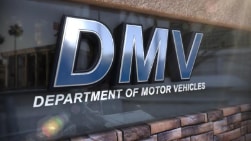And what are the important things to know about them and how they affect you?
A mobile home title is a legal document that establishes ownership of a mobile or manufactured home. It serves as proof that the person named on the title is the legal owner of the mobile home, and it also contains important information about the mobile home, such as the manufacturer, model, and serial number.
In many states, mobile homes are considered personal property, rather than real estate, and are therefore titled similarly to automobiles. The title is typically issued by the state’s department of motor vehicles or similar agency and must be transferred to a new owner when the mobile home is sold or otherwise transferred.
Having a mobile home title is important for several reasons. First, it ensures that the rightful owner can legally sell or transfer the mobile home. Additionally, it may be necessary to obtain financing or insurance for the mobile home. Finally, if the mobile home is ever stolen or damaged, the title can be used to establish ownership and make insurance claims.
Whether you own a mobile/manufactured home, or you’re thinking of purchasing a mobile home, you’ll need to be familiar with what the title form is and how it affects you. My goal is for this post is to help you better understand:
- What is a mobile home title?
- How many mobile home titles should you have?
- What is the difference between a title and a deed?
- Is someone else listed as the owner of record on your title form?
- How is a missing mobile home title replaced?
- What should you know about title lien holders?
- How do title requirements differ in each state?
- Related questions
Table of Contents
What is a mobile home title?
A mobile home title is a state issued paper conveying ownership of personal property, much like a vehicle title. The title lists the owner of record, active lien holders, and information about the home. They’re used for homes that aren’t permanently affixed to land.

How many mobile home titles should you have?
You’re not alone if you didn’t know that many mobile homes have more than one title. A simple rule-of-thumb to help you remember how many titles a mobile home needs is to know that every width of the home needs its own title. For example:
- Single-wide mobile homes have one title
- Double-wide mobile homes have two titles
- Triple-wide mobile homes have three titles
- And so on
What is the difference between a title and a deed?
Simply put, personal property uses titles and real property (real estate) uses deeds.
Personal property is treated much like a vehicle. Real property is considered full blown real estate, like a site-built home. So how do you know if your mobile home is considered personal property or real property? Find out by asking yourself these two questions:
- Do you own the land beneath your mobile home?
- Is your home considered “permanently affixed” to the land?
If you answered yes to those questions, then you should have a deed instead of a title. Each state has an official process required to convert mobile homes from personal property to real property. Many states use a document called an Affidavit of Affixture to do so.
We’ll cover this more at the end of this article, but for now we’ll focus on mobile home titles.
Is someone else listed as the “Owner of Record” on your title form?
Like I mentioned earlier, the title form conveys ownership of the home. It does this by officially declaring someone as the owner of record. The person listed is the one that can claim legal ownership of the property. So, if anyone other than you is listed, then you’re considered just a resident and not the owner. Here’s what you can do to fix this problem.
Let’s cover two different scenarios that you might be facing and what you can do about it.
SCENARIO 1:
Let’s assume that you bought your home from the previous owner, that you are now living in it, that you have the title form, and that someone else is listed as the owner of record.

This might be because you and the previous owner signed the title, but didn’t get the title transferred to your name. As long as you both signed the title form at the time of sale, then you have an executable title. You can easily become listed as the owner of record by contacting your local motor vehicle department.
SCENARIO 2:
If the previous owner didn’t sign the title form at the time of sale and they’re still listed as the owner of record, then the previous owner will need to request a duplicate title. They must do this because only the owner of record can request duplicate titles.
Once they receive the duplicate title, then you’ll both need to sign the title form, and you can have the local motor vehicle department transfer title to you as the new owner of record.
How is a missing mobile home title replaced?
Uh oh, you lost your title? Depending on the scenario, this can be easy or tough to fix. Just like above, let’s go over two possible scenarios that you could be facing and how to overcome them.
SCENARIO 1:
Let’s assume that you ARE listed as the owner of record with the state, but you DON’T have a copy of the title form. This is the simple problem to fix. Just contact the motor vehicle department and request a duplicate title. Keep in mind that there might be a small fee to do this.
Also, it’s helpful to have your home’s Vehicle Identification Number (VIN) and its Serial Number (SN), but depending on where you live, not entirely necessary.
SCENARIO 2:
Let’s now assume that you AREN’T listed as the owner of record with the state and you DON’T have a copy of the title form. This is the more difficult problem to solve and will require help from the park manager overseeing where the home located.

You’ll need to approach the park manager, explain that you don’t have title and aren’t listed as the owner of record, and ask that they file for abandonment. This can be a lengthy process, but it may lead to you obtaining title and being listed as the owner of record for your home.
What should you know about title lien holders?
A lien holder is typically a financial institution that has some legal claim to the personal property, or home in this case. If you bought your home through a lender, or if you have taken out a new loan and used your home as collateral, then your title will list the lender as a lien holder.
If there’s a lien holder on your title, then you might not have your title in hand. This is because most lien holders keep the title themselves. However, you might be able to request a duplicate title so that both you and the lien holder have a copy. This varies from state to state though.
Unfortunately, you won’t be able to sell the home if there is a lien holder on the title. You must first payoff the loan. Oftentimes you can sell the home and pay off the loan all at the same time. Contact the lien holder/lender and the motor vehicle department about how to do this.
Once you’ve paid off your loan, you, the lender, and your local motor vehicle department can work together to remove the lender as a lien holder. This will give you free and clear title as the owner of record. Congratulations! This means the house is officially yours.
How do title requirements differ in each state?
I hope this article has been helpful in explaining what a mobile home title is and how to deal with common problems that occur with them.
Title have different requirements from state to state, so follow this link to better understand how things work where you live.
Related Questions
What is an Affidavit of Affixture?
Before you leave, here is a quick explanation of what an affidavit of affixture is.
An affidavit of affixture is a county prepared form that converts a mobile home from personal property to real property. In order to get one, you must own both your home and the land it occupies. Contact your county office for assistance obtaining an affidavit of affixture.
Thanks for stopping by and reading this article! Leave a comment if you have questions and we’ll do whatever we can to help you get an answer to your question.
